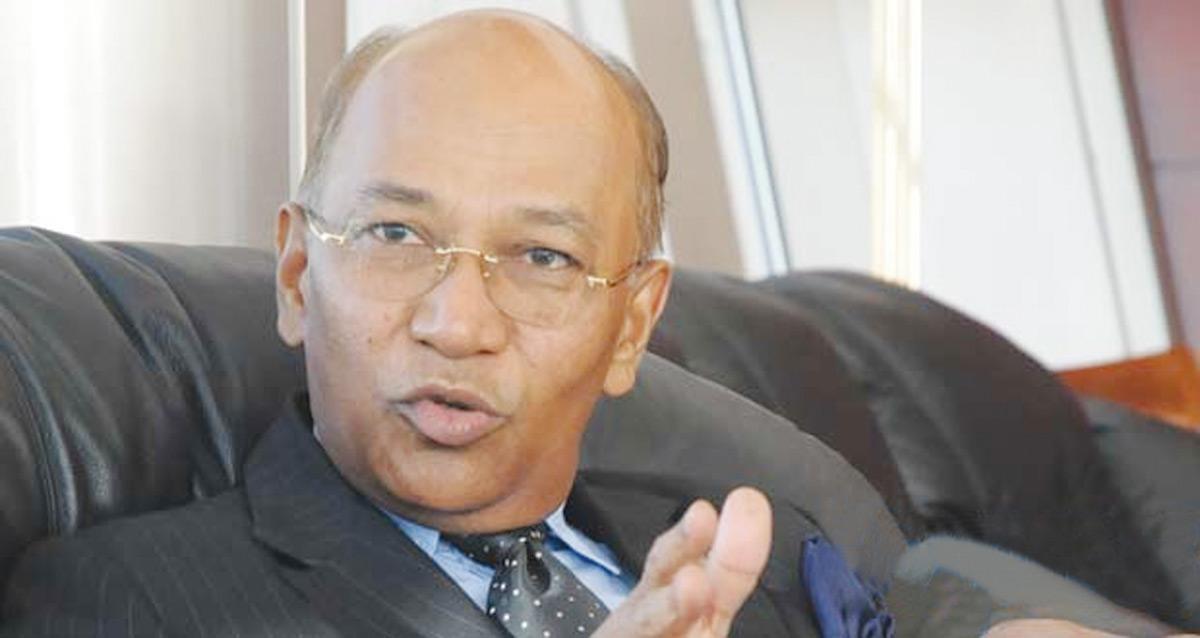
Africa-Press – Mauritius. As the year 2023 draws to a close, the Mauritius Times takes a moment to engage in a comprehensive reflection on the events that have shaped the headlines and narratives throughout the past months.
In an insightful interview with Manou Bheenick, former Minister and former Governor of the Bank of Mauritius, we delve into the nuances of a year marked by its share of the good, the bad, and the ugly.
In this candid conversation, Manou Bheenick traverses through the realms of politics, justice, and governance, touching upon electoral petitions, constitutional reforms, and the urgent need for a streamlined electoral petition process.
Manou Bheenick also offers a critical assessment of Mauritius’ economic performance, considering global challenges and emphasizing the importance of sustainability.
Mauritius Times: What a year it’s been! One is tempted to exclaim after going through the long list of events that have hogged the headlines in 2023.
We have had, as usual, the good (very little of it, though), more of the bad, and the ugly as well. What adjective/s would best describe 2023, according to you?
Manou Bheenick: Appalling, absolutely appalling, and bordering on the execrable, the like of which I never dreamt would ever cast its desolate pall over our poor country.
Yes, we’ve had the good, the bad, and the ugly as you say but, I must add, without the slightest of the moral ambiguities of the eponymous Sergio Leone spaghetti western that immediately springs to mind when you juxtapose these three adjectives. And, for mood music, we’ve been served our infamous Assembly Speaker’s vocalizations for soundtrack in lieu of Morricone’s exceptional score.
The good — I differentiate the good from the seemingly good, especially the non-stop flow of populist fare served in generous doses to lull the short-sighted and the gullible — the good is infinitesimal; the bad is nothing short of humongous; the ugly is well in the realm of the ginormous.
The shades of grey have been overtaken by darker tones dispelling any possible moral ambiguity about the dark intentions and designs of the crowd running the show.
Whatever happened to our glorious post-independence trajectory when we proved an army of doomsayers wrong? We seem to have forgotten that not all the doomsayers were foreign.
Why did we change course? Why did we follow the false prophets? Look back with regret, anger, or no doubt for some with satisfaction. Our contemporary history adds extra layers of meaning to the words of LP Hartley: “The past is a foreign country: they do things differently there.
* To name only a few, we again saw electoral petitions set aside by the Supreme Court.
There was disappointment with the Privy Council’s judgment in the Dayal petition and the license it gives to the conduct of future elections. The continuing preoccupation with the cost of living for most households in the country, and the latest issue of serious concern relates to the Financial Crimes Commission.
. that’s all very depressing, isn’t it?
Indeed, it is! There was a time when, in international fora, when discussing reasons for the relative success of Mauritius — small, remote, and resource-poor as it was — compared to its better-endowed African peers, I used to list our extra-territorial court of final appeal on the asset side as an advantage.
And you could always bet on some African colleague sniggering that it was a colonial relic that we should get rid of once our country really became independent!
Courts dispense law, not justice. The British Privy Council is, in its own country, often also regarded as a court of justice distinct from the lower courts which are courts of law.
To the layman’s eye, in the matter of the Dayal electoral petition, the honourable Law Lords have taken a risible stand which seems to transgress justice, condones moral transgression, and can be seen as giving a blank cheque for more of the same from the transgressors.
The electoral petition underlines another major failure, i. e. apart from greater clarity on electoral fraud and bribery, in our electoral system is that it took nearly four years for this petition to wend its way to closure, and this in a system where the term of office of the impugned elected candidate is five years.
A corrupt elected candidate could well serve 80% of his term before he could be unseated if and when found guilty. Is this at all acceptable? Is it even respectful of the value of the citizen’s vote?
There is talk of constitutional reform in the air. Constitutional change requires a 75% majority. The likelihood of the next election — probably besmirched by even more electoral bribery of the kind which has been waved through by the Law Lords — producing such a majority is slim. A cross-party majority is possible, but unusual in our country.
The urgent requirement to consolidate the free and fair electoral mechanism is to flesh out and accelerate the electoral petition process, with a time-bound calendar for case disposal before a specially-constituted Constitutional Court, or a Constitutional Bench of the Supreme Court, to hear such cases as a matter of topmost priority, continuously, and act within the specified time-frame.
* On the other hand, there’s one major concern that has come up lately: the total cost of salary increases, its financing and sustainability.
We know the government will get its money back from an increase in tax revenues, VAT, CSG, etc. , but what will be the long-term impacts of such policies? I am sorry but I beg to differ. This is hardly a new concern.
It’s been there ever since this government, and its immediate predecessor, which was also its mentor and enabler, came to power nearly 10 years ago at end-2014.
Their sheer impudence and imprudence have been arrogantly on display ever since wherever you care to look in the matter of public revenue and expenditure, its accountability and transparency, and beyond it in social administration and economic management.
These are the people who (1) told our voters long before Covid that they had a magical solution to our financial predicament, (2) dispensed state largesse left and right,
(3) shirked away from repairing ailing public finance,
(4) plundered central bank reserves,
(5) commandeered the privately-financed National Pension Fund,
(6) introduced a culture of opacity in state finance,
(7) spread corruption in parastatals and Government-linked companies,
(8) defanged and neutered regulatory and supervisory institutions,
(9) stuffed cronies and their progeny in any available nook and cranny in the country,
(10) the list goes on and on. I don’t find it at all surprising that they show such a total lack of concern with the budgetary and financial implications of the salary increase.
They have been fuelling inflationary pressures with the active complicity of the central bank which has long become an agency of the Finance ministry.
They have continually debased the national currency — by a cumulative 50%, or thereabouts, since my expulsion from the central bank: where the dollar was then freely available and then trading in the range of Rs 29-30, it’s become increasingly scarce, and you would be lucky to get it at Rs 45 ++. I waited nearly a month for a small dollar transfer to be cleared by a prime bank.
For More News And Analysis About Mauritius Follow Africa-Press






